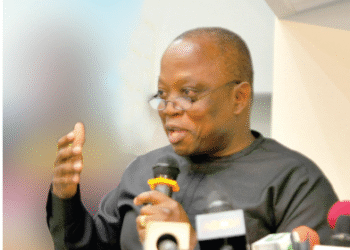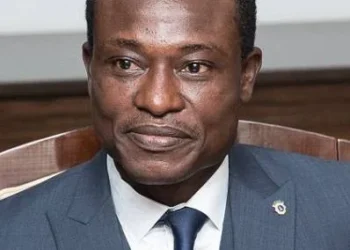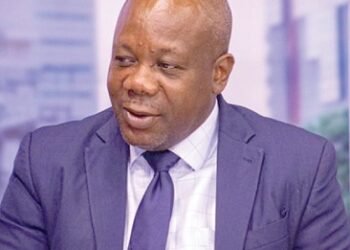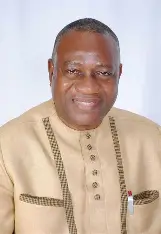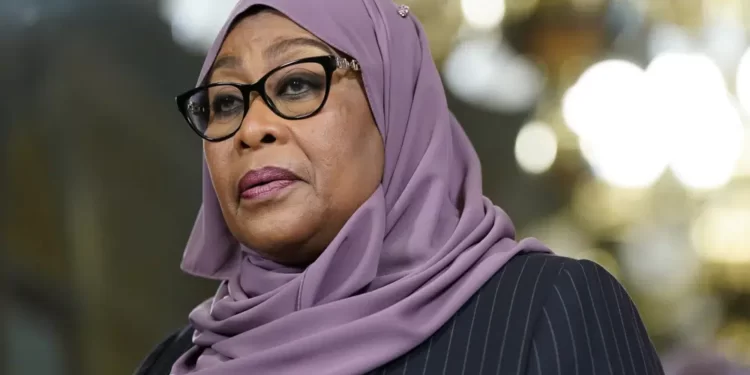The newly inaugurated Board Chair of the Economic and Organized Crime Office (EOCO), Daniel Yaw Domelovo, has pledged to introduce what he describes as OPERA—Operation Prevent and Recover All Loots, as part of renewed efforts to protect Ghana’s public purse.
The former Auditor-General, known for his outspoken stance against corruption, emphasized that recovery alone is not enough, insisting that prevention must form an equally central part of EOCO’s mandate.
Speaking after assuming office, Mr Domelovo explained that focusing solely on recovering stolen state resources will not sufficiently address the systemic weaknesses that allow corruption to thrive. Instead, he argued for a balanced approach that combines recovery with strong preventive mechanisms.
“To be honest with you, the recovery is very key and we must do that. But we must move beyond just the recovery; we must also put in place prevention. So I normally talk about OPERA—Operation Prevent and Recover All Loots.
“We must put preventive measures in place, as well as anybody who takes public funds, we go after the person, recover the money, and put it into the state kitty”.
Board Chair of the Economic and Organized Crime Office (EOCO), Daniel Yaw Domelovo
Mr Domelovo’s commitment comes at a time when public concerns over corruption and economic crimes remain high. With reports of public funds being misappropriated by officials, the new chair stressed the importance of citizens rallying behind EOCO to hold leaders accountable.
“They should be excited by the fact that they know this guy; he doesn’t care about stepping on necks. People talk about stepping on toes, can you even break your neck and go?
“Because when it comes to the national issues, I don’t care who is involved. So they should be happy that the time has come. And it is a collective issue, it is not only for us. Citizens should get on board; they should help us to protect the public purse.”.
Board Chair of the Economic and Organized Crime Office (EOCO), Daniel Yaw Domelovo

Mr Domelovo did not mince words about the consequences of corruption, stressing its direct impact on the lives of ordinary Ghanaians. “I think it should be painful to all of you when you don’t get the health service that you require, your roads are bad, electricity is not good, and all you hear is that millions of dollars is being misappropriated by public office holders. I think this should be a thing of the past,” he lamented.
Acknowledgement of Challenges
Although he has pledged to recover state funds lost to corruption, Mr Domelovo acknowledged the challenges of retrieving every single cedi.
“I think we will recover the Cedis, but not every Cedi as you put it. Which means that if I’m not able to retrieve the last Cedi I have lost, well, we are going to cover the loss.
“Our job as a board is very clear in the action, which is to provide quality guidance and supervise the economic and organized crime process to discharge its mandate. So our job basically is to create the enabling environment for them to do their work professionally and independently.”
Board Chair of the Economic and Organized Crime Office (EOCO), Daniel Yaw Domelovo
Pressed on his specific targets under the proposed Operation Recover All Loot, Mr Domelovo urged patience, noting that he had been in office for less than a day.
“I thought you should be a bit patient with me. I have been sworn into office not even 24 hours, and you want me to give you a target? We will meet at the board and strategize. We will make our strategy known to them”.
Board Chair of the Economic and Organized Crime Office (EOCO), Daniel Yaw Domelovo
A key challenge often raised in the fight against corruption is how to deal with politically exposed persons (PEPs), as investigations involving them frequently generate accusations of political interference.

Mr Domelovo, however, dismissed fears of political compromise, stressing that accountability must apply across the board. “If we cannot hold politically exposed people accountable, then who else should we hold accountable? So that is not our problem. Our job is to protect the public sector without looking at who is involved,” he said firmly.
Commitment to Mandate
On the tools EOCO would rely on to trace stolen funds both domestically and internationally, Mr Domelovo was cautious not to reveal operational strategies. However, he assured the public of EOCO’s readiness.
“Well, there are systems in place, there are tools in place. Unfortunately, in fighting crime, it is difficult to expose your strategy. But the assurance I can give to them is that we are going to do our utmost best”.
Board Chair of the Economic and Organized Crime Office (EOCO), Daniel Yaw Domelovo
Mr Domelovo further outlined the timelines within which the public can expect clear direction from the new board. “Give us three months, and I think by then we will have reviewed the existing system, the strategy, the organizational structure, etc. And maybe by then, come out with our tools,” he explained.
His emphasis on a structured and strategic approach suggests that the new EOCO leadership will take time to thoroughly assess internal systems before embarking on high-profile recoveries. This, he argued, is the only way to ensure effectiveness, professionalism, and independence in EOCO’s work.
Domelovo’s return to a public anti-corruption role has been met with cautious optimism. His tenure as Auditor-General earned him both praise and criticism, particularly for his uncompromising posture on accountability, which led to landmark surcharges and disallowances against individuals and institutions.
Many Ghanaians view his appointment as a chance to reinvigorate the country’s anti-corruption machinery, though skeptics remain wary of the political pressures EOCO has historically faced.

At the heart of his message, however, is the conviction that corruption must be seen as an attack on national development and the welfare of citizens. By linking corruption directly to the poor state of infrastructure and essential services, Mr Domelovo underscored the urgency of collective responsibility in fighting economic crimes.
As EOCO embarks on a new chapter under his leadership, the coming months will test the effectiveness of OPERA in shifting the institution from mere rhetoric to practical results.
Mr Domelovo’s blunt approach, combined with his reputation for resilience, suggests a no-nonsense direction for EOCO. But whether these efforts will translate into meaningful recoveries and sustainable reforms remains to be seen.
READ ALSO: Oil Prices Dip as Trump-Zelensky Talks End




